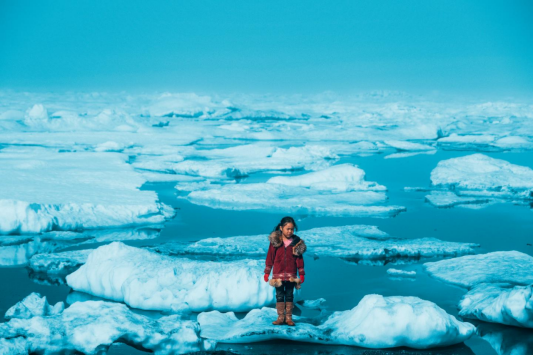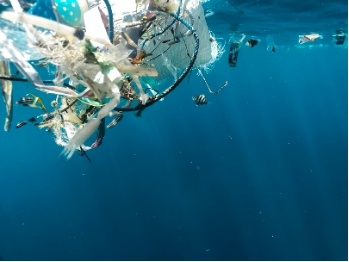This broad theme considers the interface of international regulatory frameworks governing climate, environment, and natural resources with international water law. Thus, it focuses on the relevant UN Sustainable Development Goals (SDGs) and multilateral environmental agreements (MEAs). Indicative topics include the legal regimes governing climate change, pollution control, ecosystem protection, as well as biodiversity conservation and the wide spectrum of cross-over issues affecting freshwater and marine ecosystems and resources.
“The recent report of the Intergovernmental Panel on Climate Change was a code red for humanity. We see the warning signs in every continent and region. Scorching temperatures. Shocking biodiversity loss. Polluted air, water, and natural spaces. And climate-related disasters at every turn…”
21 September 2021 - Secretary-General’s address to the 76th
Session of the UN General Assembly, António Guterres

Source: UNICEF/UN056164/Sokhin
Climate change has resulted in a significant increase of severe weather events such as droughts, floods, and forest fires, which have serious negative effects on water resources and agriculture and their management in many countries. The impacts of global warming on oceans include the rise of the sea level, acidification, decline in marine species, reduced fishery catches, intrusion of salt water into estuaries and coastal hazards. Climate change is projected to exacerbate shortages in already water-stressed regions and increase their number (United Nations, 2020).
With population growth, urbanisation, and economic development the demand for water, food and energy will grow and the pressure on ecosystems will be amplified. Parties to the UNECE 1992 Water Convention have sought to address the complexity of the water-food-energy-ecosystem nexus, by developing a methodology for intersectoral dialogue in transboundary basins to foster cooperation. The ecosystem approach helps Parties to meet their obligations to use water resources sustainably. Cooperation through agreements and joint bodies, such as river and lake basin commissions, provide a mechanism for the exchange of information on existing and planned uses of waters, as well as on sources of pollution and ecosystem degradation.

Despite the emergence of the ecosystem approach in international water law, the protection of marine resources has not been prioritised and problems persist in many regions of the world. There are, however, instruments aimed at protecting marine environments and resources such as the UNEP Regional Seas Programme, established in 1974. The numerous Regional Seas conventions and plans of actions provide inter-governmental legal, institutional and policy frameworks to tackle the degradation of the oceans and seas at a regional level, addressing issues such as protected areas, marine litter, oil spills, ship discharges, transboundary movement of waste, integrated coastal zone management (ICZM) and land-based pollution. Disaster reduction, climate change adaptation and sustainable consumption and production issues can also be addressed through relevant MEAs. The Global Programme of Action for the Protection of the Marine Environment from Land-based Activities (GPA) was adopted by 108 Governments, and the European Commission in 1995. It provides a multi-stakeholder platform to deal with land-based impacts on the marine environment.
IWLA research under this theme
Liu Y. Beyond semantics: Overcoming the normative incoherence surrounding the protection of international watercourse ecosystems. RECIEL. 2020; 29:336–348.
McIntyre O. State responsibility in international law for transboundary water-related harm: The emergence of a new ecosystems-based paradigm? RECIEL. 2020; 29:430–441.
Qin T, Gu J. Payments for ecosystem services in transboundary water allocation cases: An approach for China and its neighbours. RECIEL. 2020; 29:417– 429.
Vinogradov S, Wouters P. Adaptation regulatory regimes to address climate change challenges in transboundary water basins: Can multilateral regionalism help? RECIEL. 2020; 29:406–416.
![]() Tel: 86-027-68756726
Tel: 86-027-68756726
![]() Address: Wuhan University China Institute of Boundary and Ocean Studies (CIBOS), P.R. China,
Address: Wuhan University China Institute of Boundary and Ocean Studies (CIBOS), P.R. China,
© International Water Law Academy. All Rights Reserved.